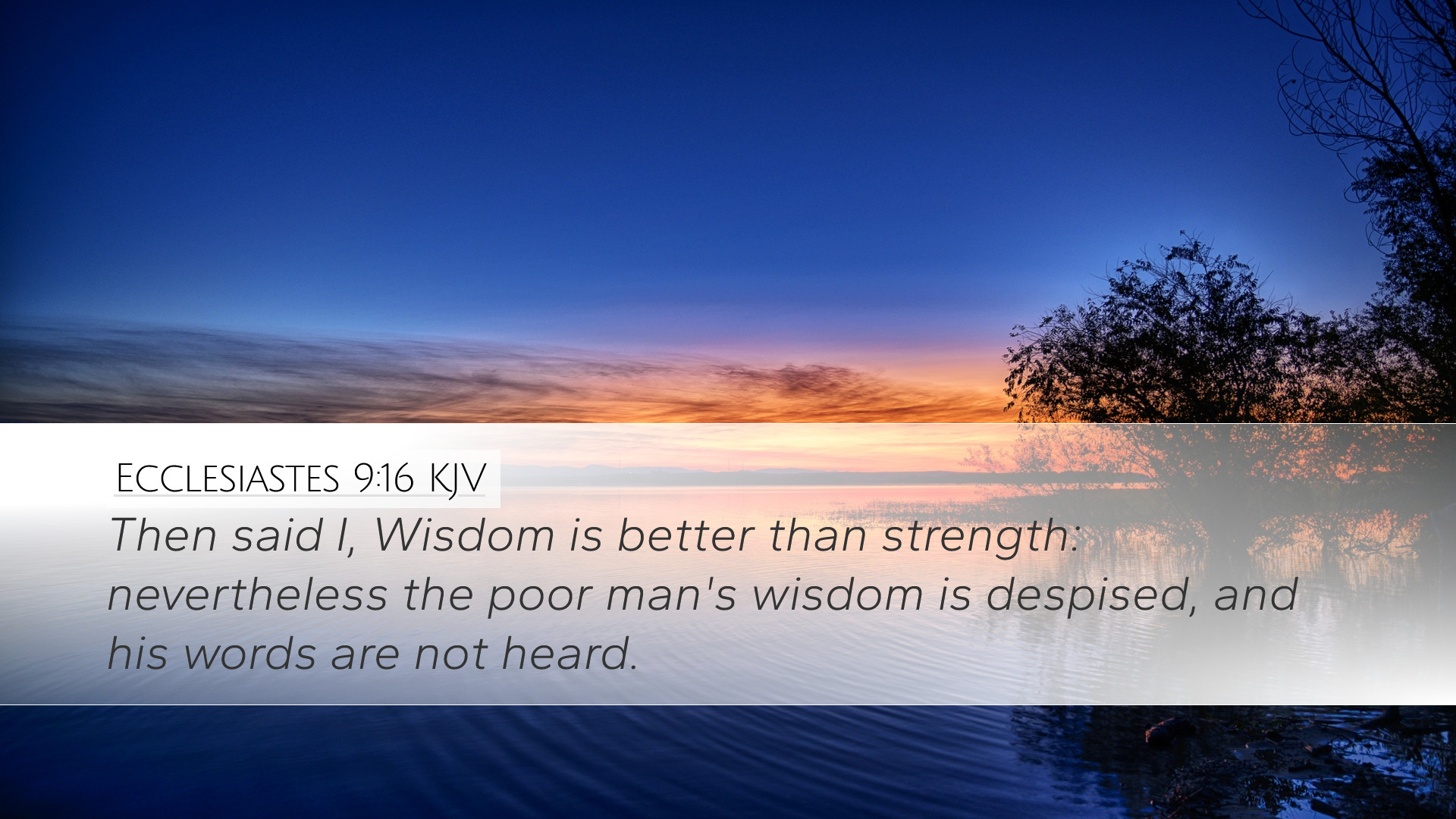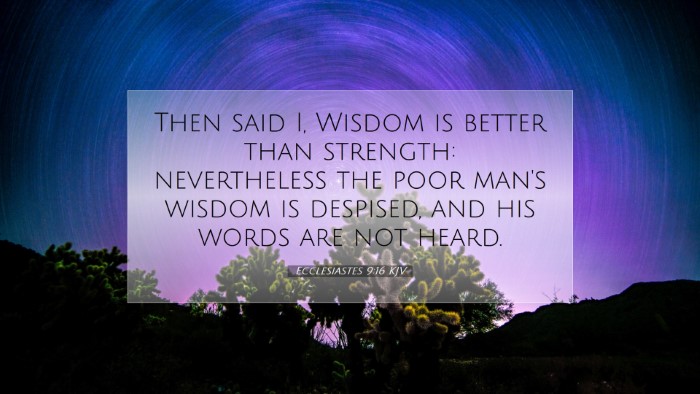Commentary on Ecclesiastes 9:16
Verse: "Then said I, Wisdom is better than strength: nevertheless, the poor man's wisdom is despised, and his words are not heard."
Introduction
Ecclesiastes 9:16 presents a profound reflection on the value of wisdom in the world, juxtaposed with societal attitudes toward those who possess it. Various public domain commentaries shed light on its implications for believers and society at large.
Overview of the Verse
The verse asserts that wisdom surpasses strength, indicating its superior value in navigating life’s complexities. However, it also laments that the wisdom of the poor is often overlooked, revealing a significant societal flaw.
Insights from Matthew Henry
Wisdom vs. Strength: Henry underscores the assertion that wisdom is better than brute strength, drawing parallels to the biblical notion of wisdom as a divine gift. He notes that wisdom leads to effective action and prudent decision-making, far exceeding the transient power of physical might.
Despised Wisdom: Henry reflects on the unfortunate reality faced by the poor. Unlike the wise and wealthy, who often gain an audience and respect, the words of the poor go unheard. This social dynamic raises questions about the value society places on wealth versus wisdom.
Insights from Albert Barnes
The Value of Wisdom: Barnes elaborates on the intrinsic value of wisdom, characterizing it as a guiding principle that equips individuals to deal with life's challenges effectively. He emphasizes that true wisdom is not merely intellectual but involves moral discernment and the application of knowledge.
Social Prejudice: Barnes points out that there exists a prejudice in society that often prioritizes wealth and outward appearances over true merit. He argues this verse highlights the folly of such a stance, suggesting that the wisdom of the humble can offer invaluable insights that are often ignored.
Insights from Adam Clarke
Cultural Context: Clarke places this verse in the context of the ancient Near Eastern world, where material success was often equated with divine favor. He emphasizes that the notion of wisdom transcends material accomplishment and should be valued equally, if not more so.
Practical Application: Clarke suggests that true wisdom manifests in humility and service. He encourages believers to seek and recognize wisdom wherever it is found, even in those who are marginalized or deemed insignificant by cultural standards.
Theological Implications
This verse invites contemplation on the nature of wisdom in relation to God’s kingdom. It echoes the theme seen throughout Scripture of valuing the humble and the lowly, reminiscent of Christ’s teachings. Believers are reminded of their calling to listen, learn, and embrace wisdom that may not come from the expectant sources of influence.
Application for Life and Ministry
- Valuing Wisdom: Pastors and leaders are encouraged to cultivate environments where wisdom is appreciated, regardless of its source. This can be a transformative practice in congregational life.
- Listening to the Marginalized: Emphasizing the voices of the poor and marginalized in community discussions can lead to richer perspectives and inclusivity in church ministry.
- Education and Mentorship: The role of mentorship and teaching in wisdom’s pursuit is essential. Encouraging learning from wise individuals in humble positions can empower the community.
Conclusion
Ecclesiastes 9:16 serves as a poignant reminder of the vital importance of wisdom and its often-overlooked presence in society. By recognizing and valuing this wisdom, particularly from the poor, the Church can better reflect the inclusivity and transformative power of the Gospel.


